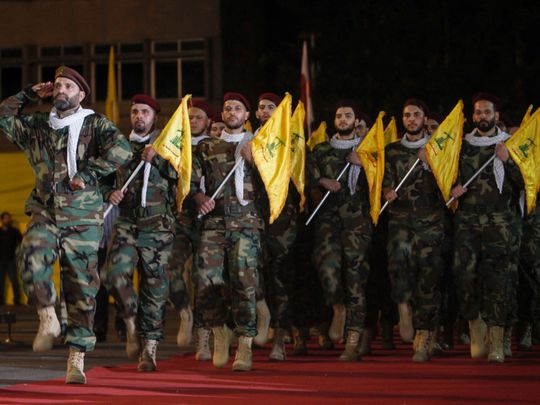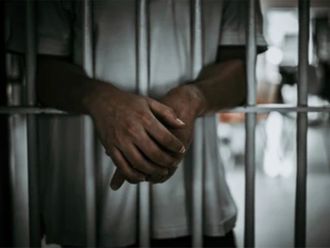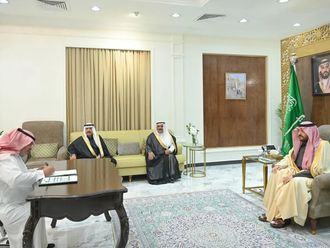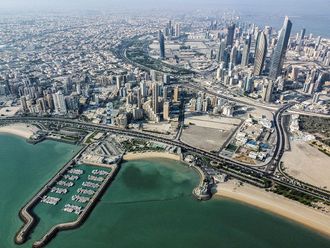
JERUSALEM: Hezbollah’s escalating attacks on Israel risk “dragging Lebanon into a war”, Israel’s military said Sunday, after renewed cross-border exchanges of fire that have raised fears of a wider conflict.
Lebanese militant group Hezbollah is allied with Hamas, which touched off the latest violence with a bloody October 7 rampage in Israel that killed at least 1,400 people, mostly civilians, according to Israeli officials.
Israel has retaliated with relentless strikes on the Iran-backed Hamas in the Gaza Strip that have killed more than 4,300 Palestinians, also mainly civilians, according to the Hamas-run health ministry.
Also read
It has also exchanged fire with Hezbollah across its northern border, amid growing concerns that Hezbollah intends to open another front against Israel in support of Hamas in the south.
“Hezbollah... is dragging Lebanon into a war that it will gain nothing from, but stands to lose a lot,” Israeli army spokesman Jonathan Conricus said.
“Hezbollah is playing a very, very dangerous game. They’re escalating the situation. We see more and more attacks every day.
“Is the Lebanese state really willing to jeopardise what is left of Lebanese prosperity and Lebanese sovereignty for the sake of terrorists in Gaza?” he added.
So far this weekend, cross-border attacks have killed six Hezbollah militants and a member of Palestinian militant group Islamic Jihad in Lebanon, while three Israeli troops were wounded, one seriously, in Hezbollah anti-tank fire. Two Thai farm workers were also hurt.
‘Every effort’
On Sunday, Lebanese Prime Minister Najib Mikati said diplomatic efforts were ongoing to “stop Israeli attacks on Lebanon” and prevent the Gaza conflict from spilling into his country.
“Lebanon’s friends are with us in continuing to make every effort to return the situation to normal,” Mikati said in a statement.
However, Lebanon was developing an emergency response plan “as a precaution”, he added.
Tit-for-tat attacks at the border have so far been relatively contained, but analysts have warned that the chances of Hezbollah scaling up involvement could hinge on any Israeli ground invasion of Gaza.
Hezbollah number two Naim Qassem warned Saturday that the group could step up its engagement, as the group announced a series of attacks against Israeli and contested territory.
On Sunday morning, the Israeli army said its forces “identified a terrorist cell attempting to launch anti-tank missiles toward the Avivim area along the border with Lebanon.”
“Soldiers struck the cell before it was able to carry out the attack,” it said.
The army also said a cell fired an anti-tank missile at an Israeli tank “in the area of Har Dov”, a site in the disputed Shebaa Farms border district.
“In response, the tank fired toward the cell,” it added, reporting no damage or casualties on the Israeli side.
Evacuations
Lebanon’s official National News Agency said Israeli aircraft overflew south Lebanon on Sunday morning, adding Israel was bombing various sites along both the border areas.
Since October 7, exchanges of fire across the frontier have killed at least four people in Israel - three soldiers and one civilian.
In southern Lebanon, at least 29 people have been killed, according to an AFP tally - mostly combatants but also including at least four civilians, one of them a Reuters journalist.
Israel has ordered dozens of northern communities to evacuate, and several thousand Lebanese have fled border regions for the southern city of Tyre.
On Sunday, the Israeli defence ministry said they were evacuating 14 additional communities from the area.
The Iran-backed Hezbollah fought a devastating war with Israel in 2006 that left more than 1,200 dead in Lebanon, mostly civilians, and 160 dead in Israel, mostly soldiers.











